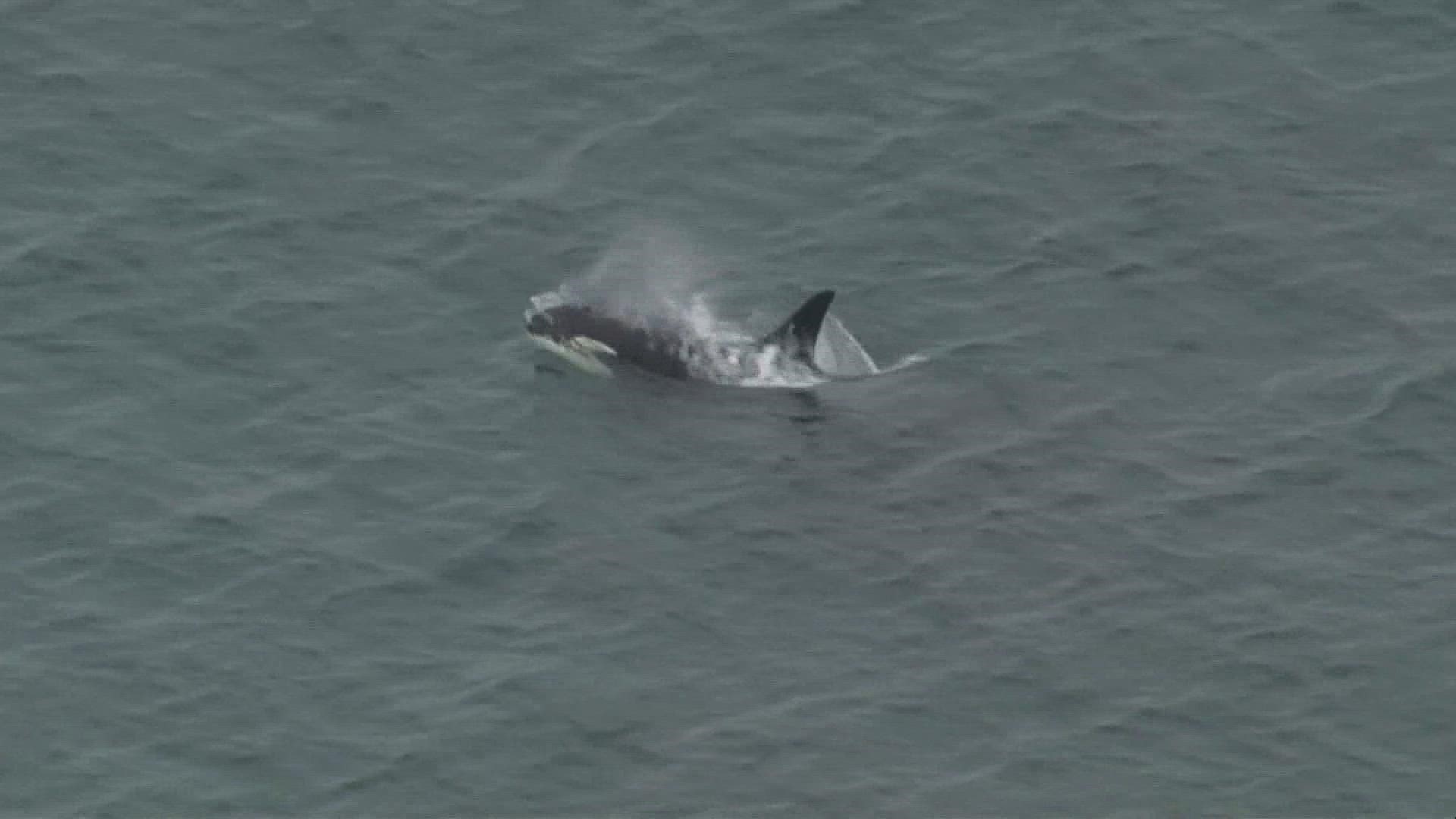SEATTLE — Approximately 61% of shipping carriers are voluntarily participating in a program to reduce underwater noise in Puget Sound.
On Friday, Gov. Jay Inslee joined sustainable maritime organization Maritime Blue, representatives from the Port of Seattle and Port of Tacoma, shipping representatives and other partners in Seattle for an update on the progress of "Quiet Sound" efforts.
Quiet Sound coordinates efforts to measure and reduce underwater noise so whales can find food. Projects include improving and supporting the Whale Report Alert System, instituting a trial slowdown area, analyzing gap areas to potentially install more hydrophones and a technology challenge to advance whale detection capabilities. More specifics on each project's purpose and the progress made can be found here.
On Friday, Quiet Sound announced that 61% of shipping carriers voluntarily participated in the first four weeks of a "trial slowdown" in north Puget Sound waters.
"We've laid out that quiet welcome mat for whales and they've been taking full advantage of it this year," said Quiet Sound Program Director Rachel Aronson.
As partners discussed progress, Southern Resident orcas were busy swimming in Puget Sound, spotted in Discovery Bay and near Alki Point mid-morning.
"The whales are here, right now, they've been swimming back and forth in West Seattle today," Aronson said. "So we know we're making a difference for the whales right now as they're here in their habitat."
Captain Mike Moore, vice president of the Pacific Merchant Shipping Association, said many businesses were happy to participate voluntarily, but needed the advanced notice a program like Quiet Sound provides.
"Industry loves certainty," Moore said. "So if you put out the information ahead of time, and they know what to expect, they have more certainty about their voyage, they can incorporate that into their voyage and they know that, hey, I'm gonna reduce my speed in this area, it's gonna cost me forty-five minutes to the dock, I can plan ahead, I can incorporate that into my voyage plan when I enter the Strait of Juan de Fuca."
Next steps include increasing the percentage of businesses participating, studying whether there are measures fast ferries could take to minimize underwater noise, hiring a scientist to conduct research in-house, and analyzing data to see how well the trial slowdown worked so far.

